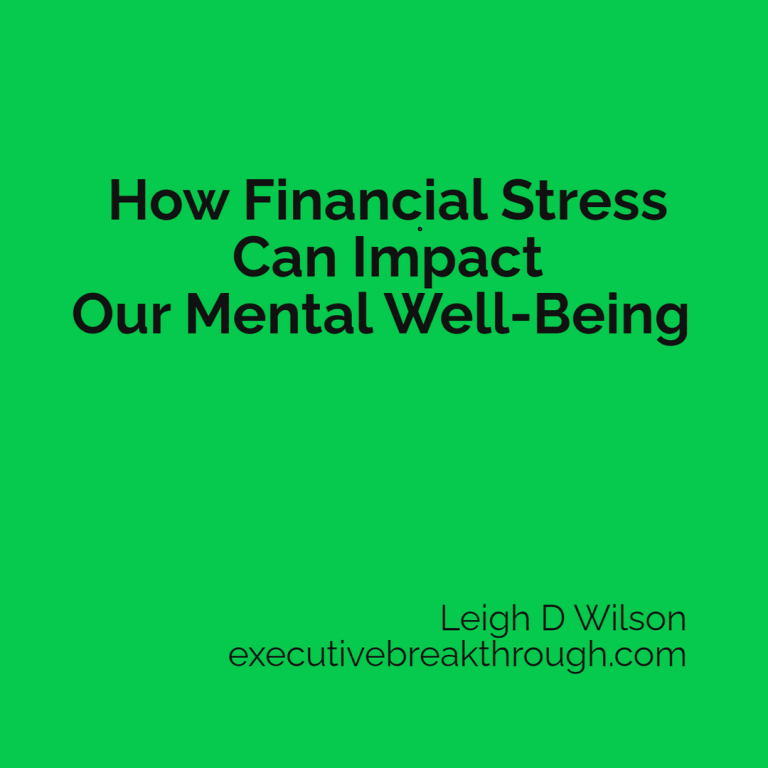Following the recent increases in interest rates, financial stress has become an unfortunately common experience, having a ripple effect on many aspects of life. This burden of this type of stress goes beyond worrying about depleting bank accounts as it seeps into mental health, impacting our overall sense of well-being.
Financial stress – the overwhelming feeling of anxiety and fear resulting from financial instability – is often rooted in factors such as unemployment, inadequate income, debt, or unanticipated expenses.
One of the most profound effects of financial stress is its impact on mental health. An American Psychological Association survey indicated that 72% of Americans reported feeling stressed about money at least some of the time, with many experiencing significant anxiety and depression symptoms and sleep disturbances, creating a cyclical pattern that can be challenging to break.
Most significantly, this emotional distress often exacerbates the financial problems that initiated the stress in the first place, forming a vicious circle of escalating problems and deteriorating mental health.
On top of that, financial stress can negatively impact physical health. It can lead to sleep disturbances, increased blood pressure, and weakened immunity. Chronic financial stress can even lead to more severe health conditions such as heart disease and diabetes, making the problem a holistic health concern.
Relationships, too, can bear the brunt of financial stress. Money issues are among the top reasons cited for relationship conflicts and divorce. A financially stressed individual may become irritable and withdrawn, creating strain in personal relationships and potentially leading to social isolation.
To mitigate these damaging effects of financial stress, a multi-pronged approach is required.
First, seek professional help if you’re experiencing severe financial issues or mental health symptoms. Financial advisers can provide strategies for managing money, reducing debt, and improving your financial situation.
Therapists and counsellors can provide tools to cope with the emotional toll of financial stress.
Next, prioritize self-care. Regular exercise, a healthy diet, and ample sleep can all help to reduce the effects of stress. Finding healthy coping mechanisms, such as mindfulness exercises, meditation, or hobbies, can also be beneficial in managing stress.
Lastly, open communication about money can help. Speaking openly with a trusted person can provide emotional support and may even yield helpful advice or a fresh perspective on managing finances.
If your financial stress is starting to get you down, we should chat as, using my unique ‘Rapid Breakthrough Therapeutic Coaching’ methods, this is something that I can probably help you find relief with quite quickly.
#selfdoubt #worry #stress #anxiety #selfconfidence #overwhelm #procrastination










